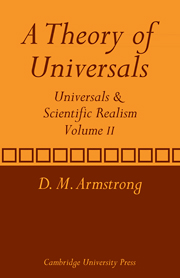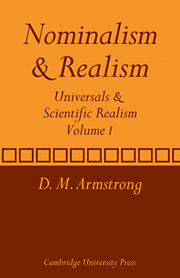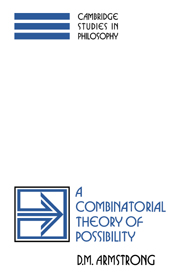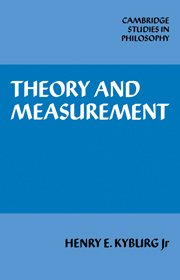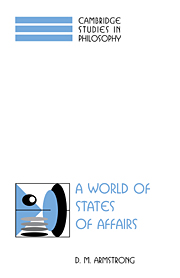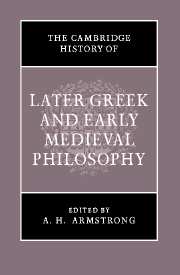A Theory of Universals
This is a study, in two volumes, of one of the longest-standing philosophical problems: the problem of universals. In volume I David Armstrong surveys and criticizes the main approaches and solutions to the problems that have been canvassed, rejecting the various forms of nominalism and 'Platonic' realism. In volume II he develops an important theory of his own, an objective theory of universals based not on linguistic conventions, but on the actual and potential findings of natural science. He thus reconciles a realism about qualities and relations with an empiricist epistemology. The theory allows, too, for a convincing explanation of natural laws as relations between these universals.
Product details
December 1980Paperback
9780521280327
200 pages
229 × 152 × 16 mm
0.47kg
Available
Table of Contents
- The argument of Volume I
- Part IV. Predicates and Universals:
- 13. Relations between predicates and universals
- 14. Rejection of disjunctive and negative universals
- 15. Acceptance of conjunctive universals
- 16. The identification of universals
- 17. Different semantic correlations between predicates and universals
- 18. Properties
- 19. Relations
- Part VI. The Analysis of Resemblance:
- 20. The resemblance of particulars
- 21. The resemblance of universals (I): criticism of received accounts
- 22. The resemblance of universals (II): a new account
- Part VII. Higher-Order Universals:
- 23. Higher-order properties
- 24. Higher-order relations
- Conclusion
- Glossary
- Indices.

